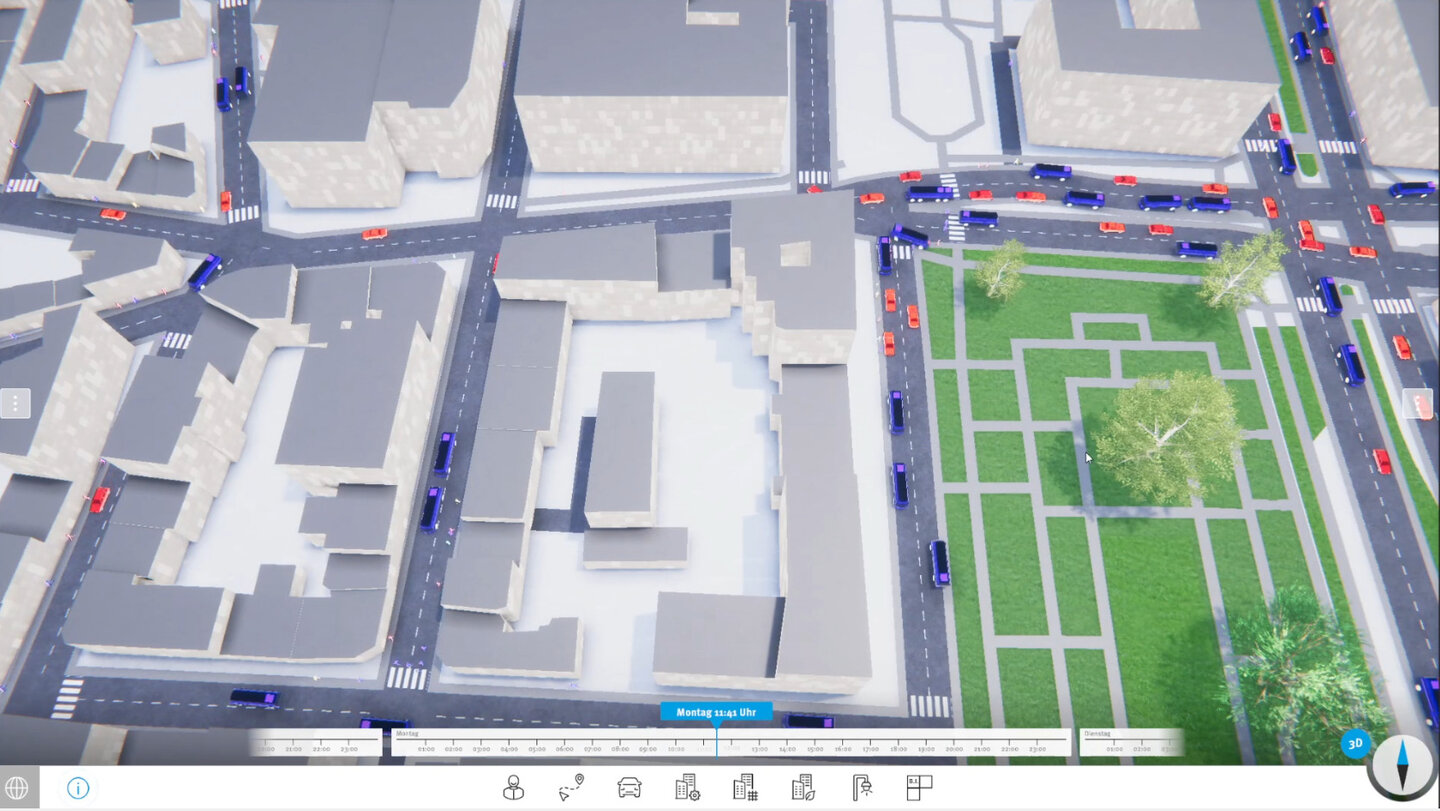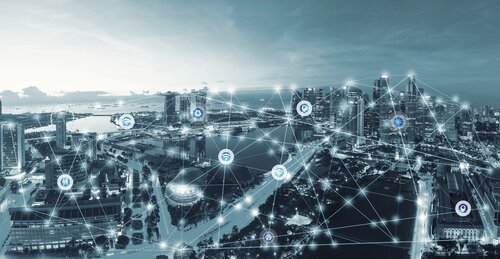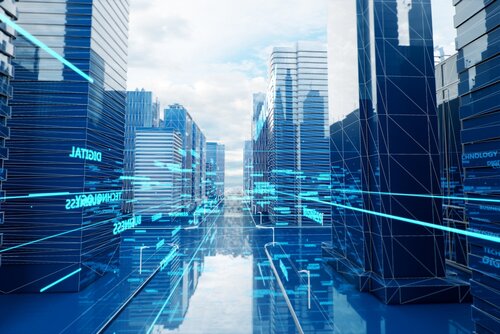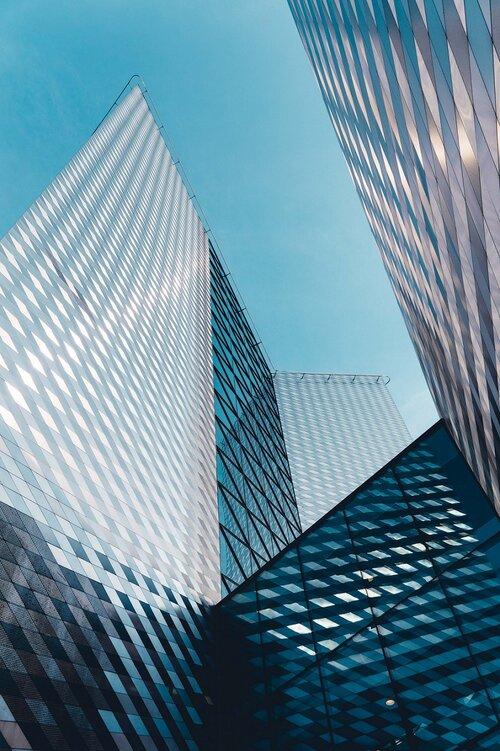Economy of Things and Smart City
Instead of hiding in a silo, the 'things' in the city 4.0 will open up and network with each other.
Urbanization is continuing, the population is growing and this increases the demand for resources such as clean water, sustainable energy, healthy air, CO2 neutral mobility and – especially lately – hygiene concepts. All of this is a challenge for municipalities. Instead of trying to solve them alone, different areas are opening up and networking.
In 2030, we expect to see a networked and Smart City 4.0. Not only buildings, even whole districts, infrastructures and energy grids will communicate with each other. The Internet of Things and Industry 4.0 make this type of networking possible.
An exchange of data within the city about factors such as the flows of people, weather events, temperature, traffic, emergencies, infrastructure capacity utilization, energy demand and much more is possible in real time – the system can make predictions, detect events and automatically react to them. In the City 4.0 the ‘things’ can speak to each other.
Moreover, the energy grid in the City 4.0 will be completely bidirectional. This means that buildings and the infrastructure can supply each other with energy.
LET’S URBANIZE DIGITALIZATION!


The Smart City demonstrator is a platform for people and technology in the city which uses an allround approach. It shows networked solutions for buildings, urban structures, mobility concepts and infrastructure systems. Developers, local communities or partner companies can receive information about the latest Smart City technologies. They can use the interactive demonstration options and participate in workshop and event formats. On the exhibition space, digital solutions and methods for the planning, equipping and operation of a Smart City can be presented in examples and demonstrated in specific projects. This can be systematically used to improve factors such as sustainability, amenity value or economic performance, as is shown by the first applications in Hamburg’s Ottensen and Oberbillwerder districts.
10 Futuretheses for the construction and real estate sector
Contact
Are you interested in discussing the future of the real estate sector with us?


